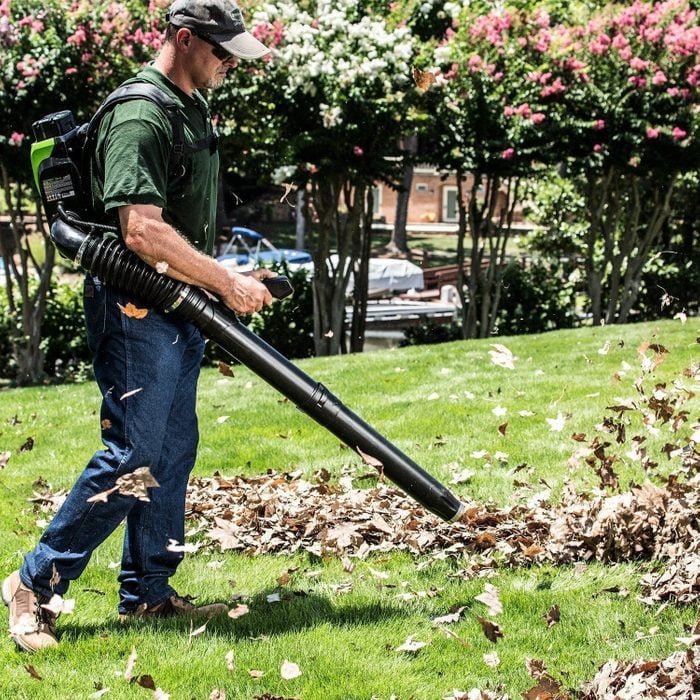The Best Backpack Leaf Blowers

Buying a Backpack Leaf Blower
If you have a large property or lots of wet, heavy leaves to clear, you could benefit from a backpack blower. These deliver more power to finish the job faster than handheld leaf blowers. And while backpack blowers often weigh more than their handheld counterparts, they feel lighter due to better weight distribution across the user’s chest, back and hips.
There are plenty of high-end backpack blowers built (and priced) for commercial operators who’ll strap them on them for multiple hours every day. For this list, we focused on models targeted to DIYers.
If you’re ready to start shopping for a backpack leaf blower, here are a few factors to consider:
- CFM and mph: You’ll see these two figures on every blower. Manufacturers rate leaf blowers by the amount of air they move and the speed the air travels. Air volume is measured in cubic feet per minute (CFM) and air speed in miles per hour (mph). So which one is more important? It depends on the material that you’re trying to move. A higher CFM will move large amounts of light, dry debris. But wet leaves or heavier debris require more force, so mph matters more.
- Power source: Backpack leaf blowers can be gas-powered or battery-operated; there are essentially no corded models. Gas motors will be two-stroke (requiring a gasoline/oil mixture) or four-stroke (gas only). Two-stroke motors are lighter and easier to repair, while four-stroke motors are quieter, more efficient and more environmentally friendly.
- Padding and vibration reduction: A backpack leaf blower should be comfortable to use. Look for a padded, adjustable harness to reduce weight and vibration reduction on the engine. This is especially true if you’ll be using it for long stretches, or if you have a medical condition that makes you more sensitive to the vibrations.
- Noise: Leaf blowers are noisy, even the “quiet” ones. Electric leaf blowers are quieter than gas-powered models. All blowers list their operating noise in decibels (dB). Some manufacturers use weighted decibels (dBA), a measurement adjusted for the range of human hearing. It’s not a one-to-one ratio between dB and dBA, but for our purposes we’ll use them interchangeably.
- Weight: Generally speaking, the lighter the blower, the better. The average weight of a backpack blower is around 23 pounds.
- Price: Most consumer backpack leaf blowers cost between $150 and $500.
- Maintenance: Gas leaf blowers require more maintenance than electrical ones, but all blowers require the occasional clean out.
- Warranty: Many manufacturers offer different warranty periods for commercial and residential use. Always check the consumer use period to make sure you’re comparing apples to apples.
No comments